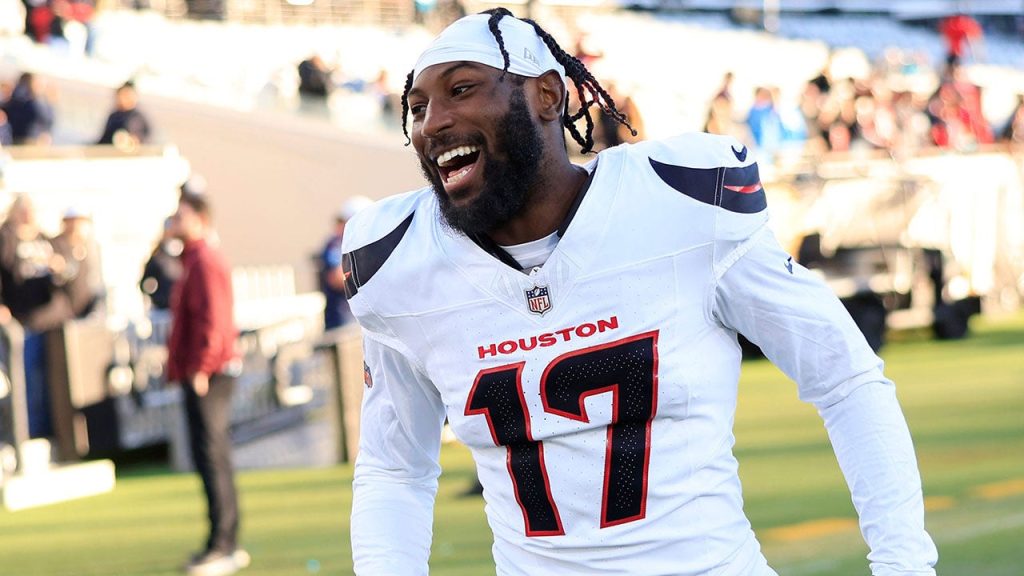Paragraph 1: The Incident
During the Houston Texans’ Week 15 matchup against the Kansas City Chiefs, a dramatic sideline incident involving cornerback Kris Boyd unfolded. On the very first play of the game, Chiefs wide receiver Nikko Remgio caught a pass that threatened to become an immediate touchdown. Boyd, however, displayed impressive hustle and managed to chase Remgio down, forcing a fumble. While the Chiefs recovered the loose ball, Boyd, seemingly under the impression that the Texans had regained possession, erupted in excitement. He ripped off his helmet and, in a shocking display of frustration, shoved special teams coach Frank Ross to the ground. This outburst drew immediate attention and a penalty flag for removing his helmet.
Paragraph 2: Boyd’s Explanation and Apology
Following the game, Boyd addressed the incident, attributing his actions to a misunderstanding and excessive excitement. He explained that he believed the Texans had recovered the fumble, based on his interpretation of the referees’ signals. He admitted that his excitement got the better of him, leading to the regrettable shove. Boyd emphasized that he was not typically prone to such behavior and expressed remorse for his actions. He confirmed that he immediately apologized to the team and to Coach Ross personally. Ross, according to Boyd, was understanding and urged him to focus on the remainder of the game.
Paragraph 3: Coach Ryans’ Response and Game Outcome
Texans head coach DeMeco Ryans, who admitted he hadn’t witnessed the shove firsthand, condemned Boyd’s behavior. He emphasized that such actions were unacceptable and did not reflect the team’s values or coaching principles. Ryans’ focus was on the unsportsmanlike conduct of throwing the helmet, highlighting the importance of maintaining composure and discipline on the field. The game itself ended in a 22-14 victory for the Kansas City Chiefs, with the Texans unable to overcome the early deficit and the emotional disruption caused by the sideline incident.
Paragraph 4: Analysis of the Incident and Its Implications
Boyd’s actions sparked intense debate and scrutiny. While some argued that his passion and competitiveness contributed to the outburst, the consensus was that his behavior was unprofessional and warranted disciplinary action. The NFL, known for its strict rules regarding player conduct, was expected to review the incident and potentially impose a fine or suspension. The incident also raised questions about the emotional dynamics within the Texans team, especially given their challenging season. Boyd’s frustration, while understandable in the heat of the moment, underscored the pressure and intensity of professional football.
Paragraph 5: The Importance of Emotional Control in Sports
The incident served as a stark reminder of the importance of emotional regulation in sports. While passion and intensity are essential ingredients for success, athletes must learn to channel their emotions effectively. Losing control, as Boyd demonstrated, can lead to detrimental consequences, including penalties, disciplinary action, and damaged team morale. The ability to remain composed under pressure is a crucial skill for athletes at all levels, and incidents like this highlight the need for effective strategies to manage emotions and maintain sportsmanship.
Paragraph 6: The Larger Context and Moving Forward
The Boyd incident, while isolated, fits into a broader conversation about player conduct and the responsibilities that come with being a professional athlete. The NFL, as a prominent and influential organization, has a responsibility to uphold high standards of behavior both on and off the field. Moving forward, it is likely that the Texans will address this incident internally, emphasizing the importance of composure and teamwork. For Boyd, the incident provides a valuable learning opportunity to reflect on his actions and develop strategies to better manage his emotions in future high-pressure situations. The incident serves as a reminder that even in the most intense moments of competition, sportsmanship and respect must prevail.

